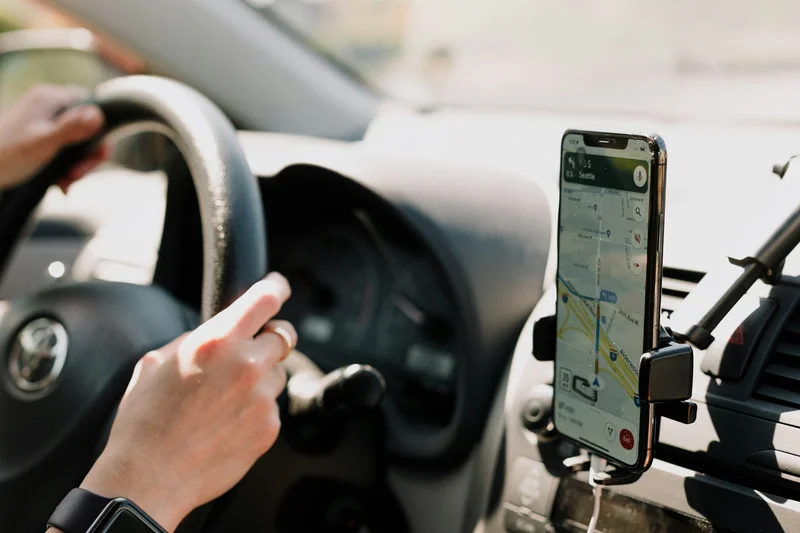When it comes to choosing the best navigation app, the eternal battle between Google Maps and Waze continues to divide drivers, techies and curious members of the geek universe. Both apps are owned by Google, but they are aimed at different user profiles. Are you keen to avoid traffic at all costs or do you prefer a feature-rich experience with multiple transport modes? We’ll break down their differences and help you decide which one fits your connected lifestyle best.
Waze: speed, community and gamified flair
If what you value most is getting there as fast as possible, Waze is written in LED neon just for you. This app is designed exclusively for people behind the wheel, whether in a car or on a motorcycle, and its focus is clear: to offer you the fastest route at all times. It achieves this thanks to its powerful crowdsourced information system, where users themselves report incidents in real time: traffic jams, roadworks, speed cameras, accidents… even the presence of plainclothes police.
Waze doesn’t ask if you want to change route: it simply does so if it detects a better option. This ability to recalculate automatically saves you time, though it can catch you off guard if you’re not paying attention. Also, its interface is a visual tribute to pop and geek culture: you can change the avatar, enable sound themes like the voice of the Master Chief from Halo, or show your “mood” as a driver when you reach certain miles driven. It even includes a built-in player to control Spotify without leaving the app. It is, without a doubt, the navigation app with the most personality in the Android galaxy (and on iOS too).

Google Maps: the all-purpose navigation tool
On the other hand, Google Maps is the Swiss Army knife of geolocation apps. It covers not only driving routes but also biking, walking, bus and train routes. Its public transit coverage, real-time schedules and multiple visual layers (satellite, terrain, 3D, air quality, etc.) make it a universal platform. Want to know how a place looks before you go? Street View and its historical timeline will let you travel back in time to see how an address has changed since 2004. A true digital DeLorean.
Plus, Google Maps shines when it comes to exploring an area. Restaurants, shops, reviews, photos, opening hours, menus… everything is there, with detailed information you can consult instantly. It also supports full area downloads so you can navigate offline, something where Waze is quite limited. Heading to a rural area or abroad with poor coverage? Google Maps will be your saving compass.

Comparison: does Google Maps win, or Waze’s unique style?
Can a fun app with a community spirit beat a multifunction giant? Let’s look at some key areas:
- Real-time rerouting: Waze takes the lead with its instant recalculation that doesn’t ask permission. Google Maps notifies you, but you choose.
- Transport modes: Google Maps covers almost every option. Waze is for driving only.
- Traffic reports: Both do it well, but Waze leads with greater accuracy and user participation.
- Police and speed camera alerts: Waze, again, wins for its level of detail.
- Offline maps: Google Maps lets you download whole regions; Waze only has a temporary cache.
- Interface and design: Google Maps is denser but much more comprehensive. Waze is simple, fast and visually cheerful.
- AI with Gemini: Both apps are starting to integrate features thanks to Google’s conversational AI. But in Google Maps it’s more useful for contextualized searches (“Where can I eat well around here?”).
- Availability: Google Maps comes preinstalled on many Android devices and is even compatible with Android Automotive OS. Point for them.
In summary, Google Maps wins in 5 categories versus 3 for Waze, according to a detailed analysis of their features. That said, many differences are matters of nuance or personal preference, just like the divide between Android lovers and iOS defenders.
So… when to use one or the other?
The key is your needs. If you’re a die-hard driver, prioritize time over context and love customizing the experience with a fun style, Waze will be your perfect co-pilot. But if you need flexibility, multimodal routes, information for exploring cities, offline capability and advanced features like a well-integrated Gemini, then Google Maps is the more robust option.
And now the key question: why stick to a single app when you can use both? Many users combine the two depending on the type of trip or city. Waze for rush hour, Google Maps to plan trips or discover new places. As a gadget fanatic would say: “you don’t have to take sides when you can have double the power in your pocket.”
Whether you’re using a Pixel loaded with Android 14 or the latest iPhone with turbocharged iOS, one thing is clear: in the duel of GPS giants, the winner is you, because whichever you choose, both apps offer a rich, powerful and increasingly intelligent experience to guide you in the real world.
.


